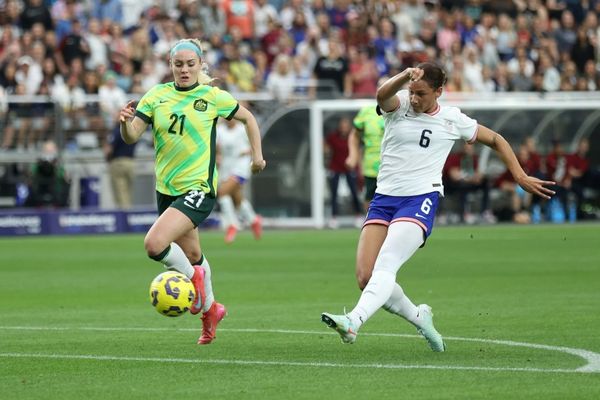
This week, changes to anti-siphoning and television prominence laws came into effect alongside a press release from the communications minister promising the new laws were part of an effort in “safeguarding access by Australians to free sports coverage and local TV”.
The anti-siphoning list is of “nationally important and culturally significant” sporting events that the government requires free-to-air (FTA) broadcasters to have first negotiation rights. It is determined by the communications minister and defines listed events as those that “should, in [the minister’s] opinion, be available [to be televised] free to the general public”.
As would be expected in a sports-mad country, the scheme lists all games of the AFL premiership season — but only for the men. For the AFL women’s season, only finals games are protected by the scheme.
There is nothing stopping an FTA broadcaster from independently acquiring the rights to events not on the list (indeed, this commonly happens, including in the AFLW regular season, which under the current AFLW broadcast deal has at least 30 games televised on FTA). But the scheme protects FTA access by giving those broadcasters a first right of acquisition.
Under changes made in 2017 (and never reversed) when Liberal Mitch Fifield was communications minister, international netball involving the Australian Diamonds outside of the World Cup was taken off the list, as were the Wimbledon and US Open tennis men’s and women’s singles quarter-finals, semi-finals and finals. The list also does not contain any domestic soccer, despite the rapid Matildas-inspired growth of the sport in Australia, and the Albanese government using the success of the Matildas to spruik changes to the anti-siphoning list back in 2023.
Cricket one-day internationals (ODI) and T20 World Cup fixtures involving Australia when played outside of Australia were also removed from the list in 2017, resulting in significantly reduced promotion of the sport at the most recent World Cups under the current Amazon broadcast deal. In 2018, under a rights deal struck between Foxtel and Seven, ODI and T20 cricket held in Australia went behind a paywall despite being on the anti-siphoning list at the time, demonstrating how events on the list can still end up behind paywalls.
Crikey contacted Minister for Communications Michelle Rowland’s office and asked why women’s AFL matches were not given the same protection as the men by the scheme, whether the 2018 cricket rights deal scenario would be prevented in future by the government’s changes to the scheme, why there wasn’t any domestic soccer on the list despite the government spruiking its support for women’s football in particular, and why the government hadn’t restored a number of events removed by the previous government.
A spokesperson for Rowland declined to answer those questions but said the government’s review of the anti-siphoning scheme found that “the coverage of sports and sporting events that have been considered to fall into the category of nationally important and culturally significant have historically tended to involve men and athletes without a disability”.
Rowland’s office did not tell us why the minister did not see fit to change that historical bias, only saying that it was “the minister’s opinion, and after extensive consultation, this is the balance that has been struck in modernising the list”.
In 2019, Rowland, then the shadow minister for communications, spoke of the “great anger from consumers” after the 2018 cricket rights deal put limited-overs internationals behind a paywall, and said that the anti-siphoning scheme “does need to be examined”.
“I think the problem with the anti-siphoning list today is that since the time that was written, and the changing nature of what’s important in sport, it becomes an arbitrary decision about what is important to Australian consumers,” Rowland told The Sydney Morning Herald at the time.
The government’s changes will extend the anti-siphoning scheme to include streaming, as well as introduce rules that require smart television manufacturers to prominently display Australian FTA television streaming services on their devices.
The changes, which have been in the works for almost the entire term of the Albanese government with initial consultation beginning in October 2022, passed Parliament in July 2024, alongside an explanatory memorandum that states that the changes are designed to “support the availability of free-to-air television services on internet connected television devices, and expand the application of the anti-siphoning scheme to online media”.
Have something to say about this article? Write to us at letters@crikey.com.au. Please include your full name to be considered for publication in Crikey’s Your Say. We reserve the right to edit for length and clarity.







